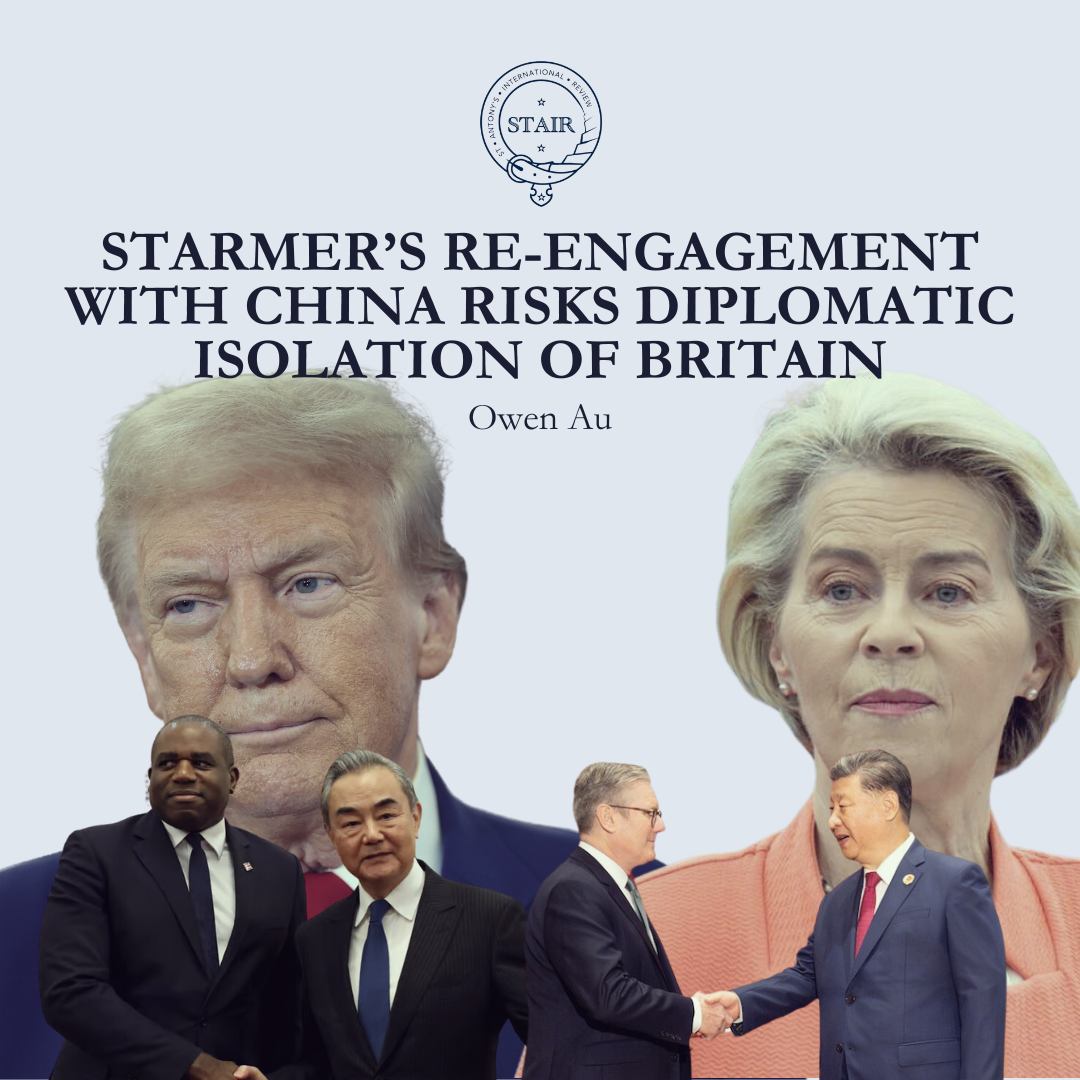[This is an op-ed by Owen Au, an independent researcher, focusing on China’s diplomacy, Indo-Pacific geopolitics, maritime security, and human rights.]
[…]
In an era of geopolitical uncertainty, Starmer may see engagement with China as a pragmatic move to prevent conflict with a rising superpower. However, aligning too closely with Beijing could prove more risky than beneficial by weakening the UK’s standing among democratic allies.
[…]
For decades, the UK has struggled to define its global role. The Labour government blames its Conservative predecessors for clinging to nostalgia and failing to recognise Britain’s diminished place in today’s world.
[…]
More than 200 days after the transition on Downing Street, however, the China audit appears to have become little more than a post-mortem, with “cooperate” appearing to be the only surviving pillar. From Starmer’s expressed desire to strengthen UK-China relations during his first meeting with Xi Jinping to the first UK-China strategic dialogue since 2018, and from the resumption of the UK-China Economic and Financial Dialogue to the green light given to China’s mega-embassy proposal, Labour has prioritised cooperation above all else. As it stands, the party’s promise of a consistent China policy means a panda-hugging approach, despite China’s ongoing human rights violations and assertive behavior abroad.
[…]
China as an authoritarian state […] views liberal democratic ideals as dangerous to its national security. A political directive issued at the outset of Xi Jinping’s presidency made clear that China sees the liberal international order as inherently threatening.
[…]
Despite London’s warm embrace, China’s mistrust of the UK remains unchanged. Four sitting UK MPs and two members of the House of Lords—including one from Labour — remain under Chinese sanctions.
[…]
Labour’s push for stronger UK-China relations will not only fail to deliver meaningful benefits, but it will also backfire. It is no secret that cultivating a friendly relationship with China often requires turning a blind eye to human rights abuses and even condoning aggressive territorial claims. This damages the UK’s international credibility and distances it further from Lammy’s own vision of “progressive ends”.
[…]
In a volatile international landscape, the UK’s strategic focus should be on strengthening ties with Europe, with which it shares cultural, ideological, and geopolitical interests.
[…]
In recent years, the EU has increasingly recognised China’s geoeconomic playbook and has adopted a more defensive posture. The bloc has emphasised “de-risking” from China, as demonstrated by its newly imposed tariffs on Chinese electric vehicles and a crackdown on Chinese e-commerce imports. Additionally, since the war in Ukraine, Russia has emerged as Europe’s top security threat, and China’s economic and military support for Russia through substantial exports of dual-use technology has further strained EU-China relations.
The more the UK aligns itself with China, the more it will raise suspicion among its European partners, pushing itself further into isolation.
[…]
[Edit typo.]


